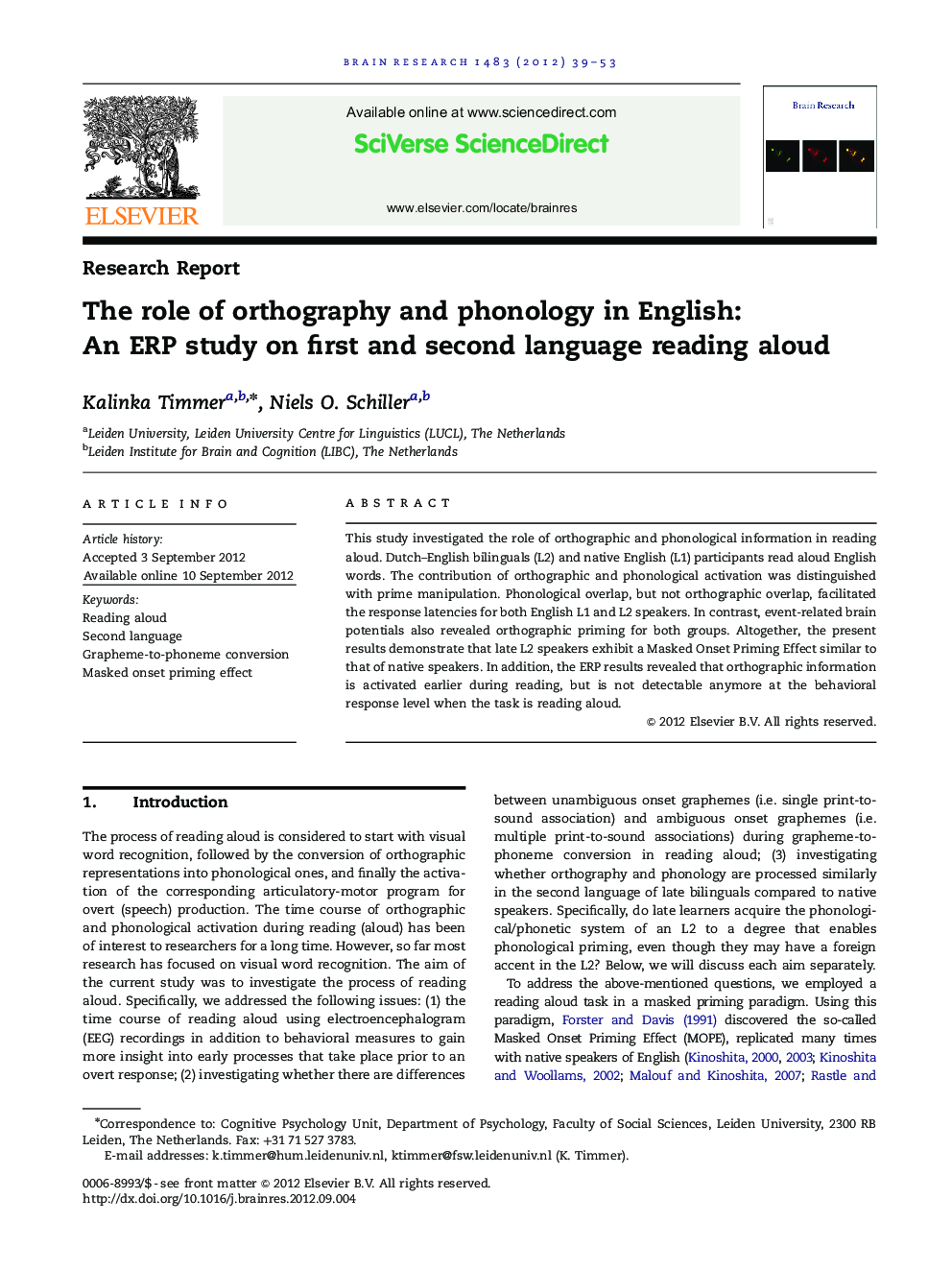| Article ID | Journal | Published Year | Pages | File Type |
|---|---|---|---|---|
| 6264095 | Brain Research | 2012 | 15 Pages |
This study investigated the role of orthographic and phonological information in reading aloud. Dutch-English bilinguals (L2) and native English (L1) participants read aloud English words. The contribution of orthographic and phonological activation was distinguished with prime manipulation. Phonological overlap, but not orthographic overlap, facilitated the response latencies for both English L1 and L2 speakers. In contrast, event-related brain potentials also revealed orthographic priming for both groups. Altogether, the present results demonstrate that late L2 speakers exhibit a Masked Onset Priming Effect similar to that of native speakers. In addition, the ERP results revealed that orthographic information is activated earlier during reading, but is not detectable anymore at the behavioral response level when the task is reading aloud.
⺠Brain activation during reading aloud in first and second language investigated. ⺠Behavioral data show similar phonological activation for first and second language. ⺠ERPs show early orthographic activation not detectable at the behavioral response. ⺠We suggest the acquisition of the second language phonological system by bilinguals.
